Despite the Congressional report the found no wrongdoing over Benghazi, many still believe that the Obama administration acted improperly
After a two-year investigation, the House Intelligence Committee has found no wrongdoing related to the 2012 attack on the U.S. Benghazi consulate that resulted in the deaths of four Americans, including the U.S. Ambassador to Libya. The report has not convinced many, however, according to the latest Economist/YouGov Poll.
Perhaps part of the reason is that only 20% of the public say they have heard a lot about the report, which was released on a Friday a week before Thanksgiving.
The Republican-led committee reported that while security was inadequate at the Consulate, allegations that the C.I.A. was delayed sending a rescue team by the Administration and that the Administration did not do all it could to rescue the trapped Americans were untrue. Additionally, the committee noted there was contradictory information in the days following the attack about the reasons for the attack; consequently, it said, there was no evidence that United Nations Ambassador Susan Rice deliberately misled or lied to the public about why the attack took place.
But there is still a lot of skepticism, especially among Republicans.
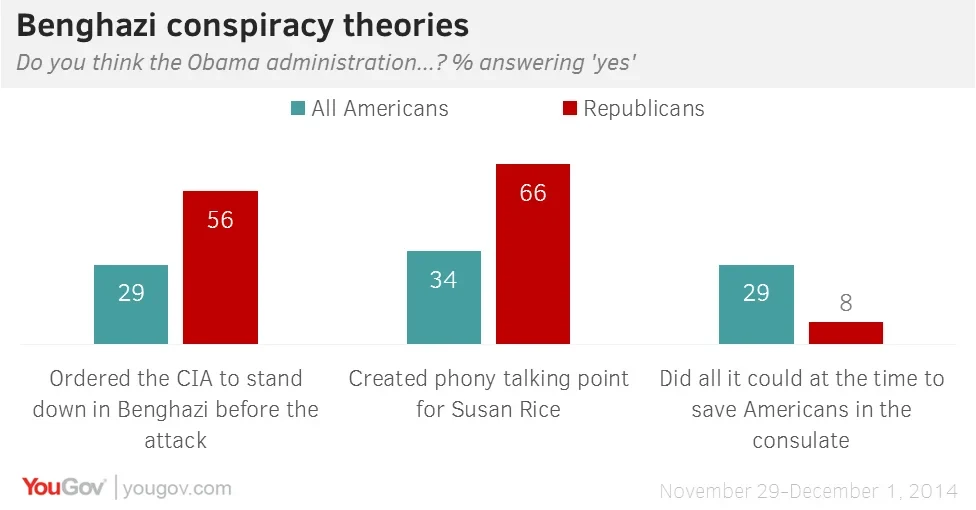
Americans are divided fairly evenly on the first two items, but clearly skeptical about the last: 44% overall and three-quarters of Republicans do not believe the Administration did all it could to rescue those trapped in the Benghazi Consulate.
Those who say they have heard at least a little about the report are slightly more negative in their opinions, especially on the question of what the Administration may have known when Susan Rice appeared on television days after the attack. 47% of them say the Administration created “phony” talking points for Susan Rice, and only 33% disagree.
The issue of those “talking points” is especially persistent. In May, 2013, 45% of those who had heard at least “a little” about the Benghazi attack thought the Obama Administration deliberately misled the American public. Today, that same group says just about the same thing.
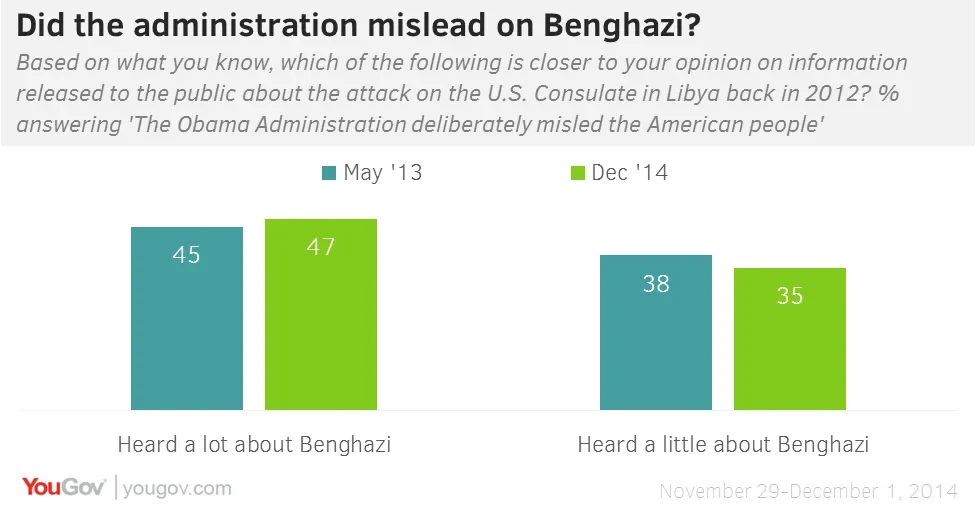
Americans are no more likely than they were earlier this year to believe security at American embassies and consulates will get better. Only 41% today are even somewhat confident that the Obama administration will take the right steps to prevent future attacks. Slightly more are not. Those results are much like those in an Economist/YouGov Poll conducted in June.
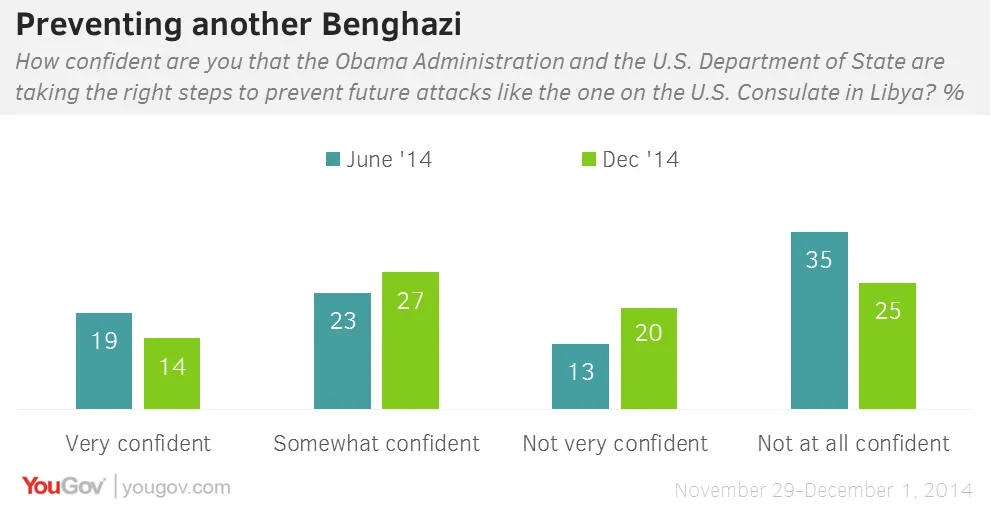
Democrats say they are confident in the Obama Administration’s actions by more than four to one. Republicans, by an even larger margin (six to one), say they are not.
The impact of the Benghazi attack and the public skepticism about it extends to both President Obama and to former Secretary of State Hillary Clinton, neither of whom come off well in the public’s assessment of their handling of the crisis. In fact, at no point since the Benghazi attack on September 11, 2012 did Americans approve of either’s performance on this. In this week’s poll, the public is just about equally negative towards both.
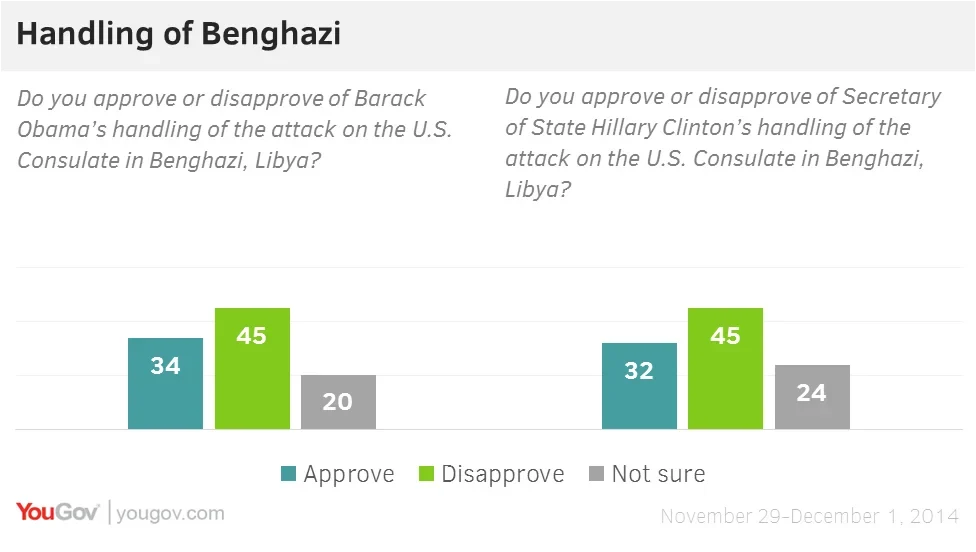
And when Americans are asked their overall opinion of Hillary Clinton, they are almost evenly divided: 46% are favorable, 47% are not. For most of the last few years, however, Clinton has been more liked than disliked, although as the 2016 Presidential race nears, and she is viewed more politically than diplomatically, opinions have turned more negative.
There is yet another Congressional investigation of Benghazi yet to come: one by the GOP-led House Select Committee appointed in May. Many Americans see at least a little bit of politics in these continued investigations: less than one in four think they are solely serious attempts to find out what really happened.
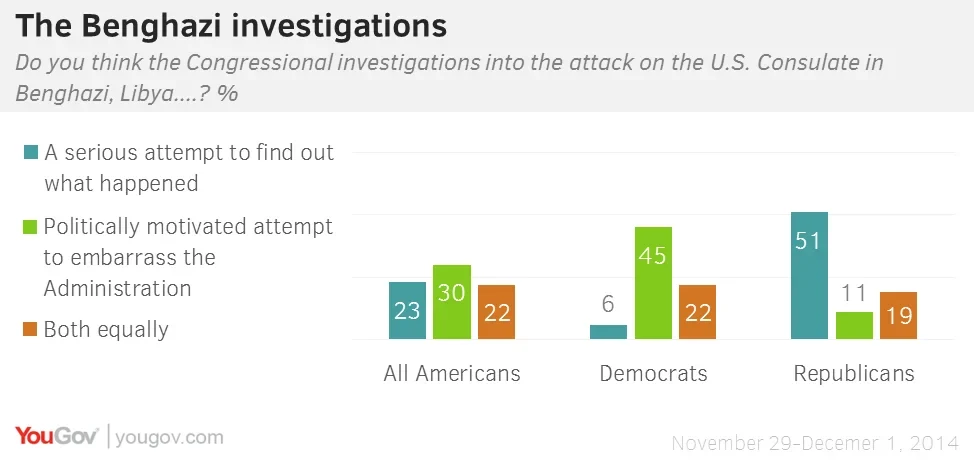
Just about half of Republicans say they are serious investigations only, but nearly a third of Republicans admit at least some politics in them. About the same percentage of Democrats admit they are at least partly non-political.
Economist/YouGov poll archives can be found here.








